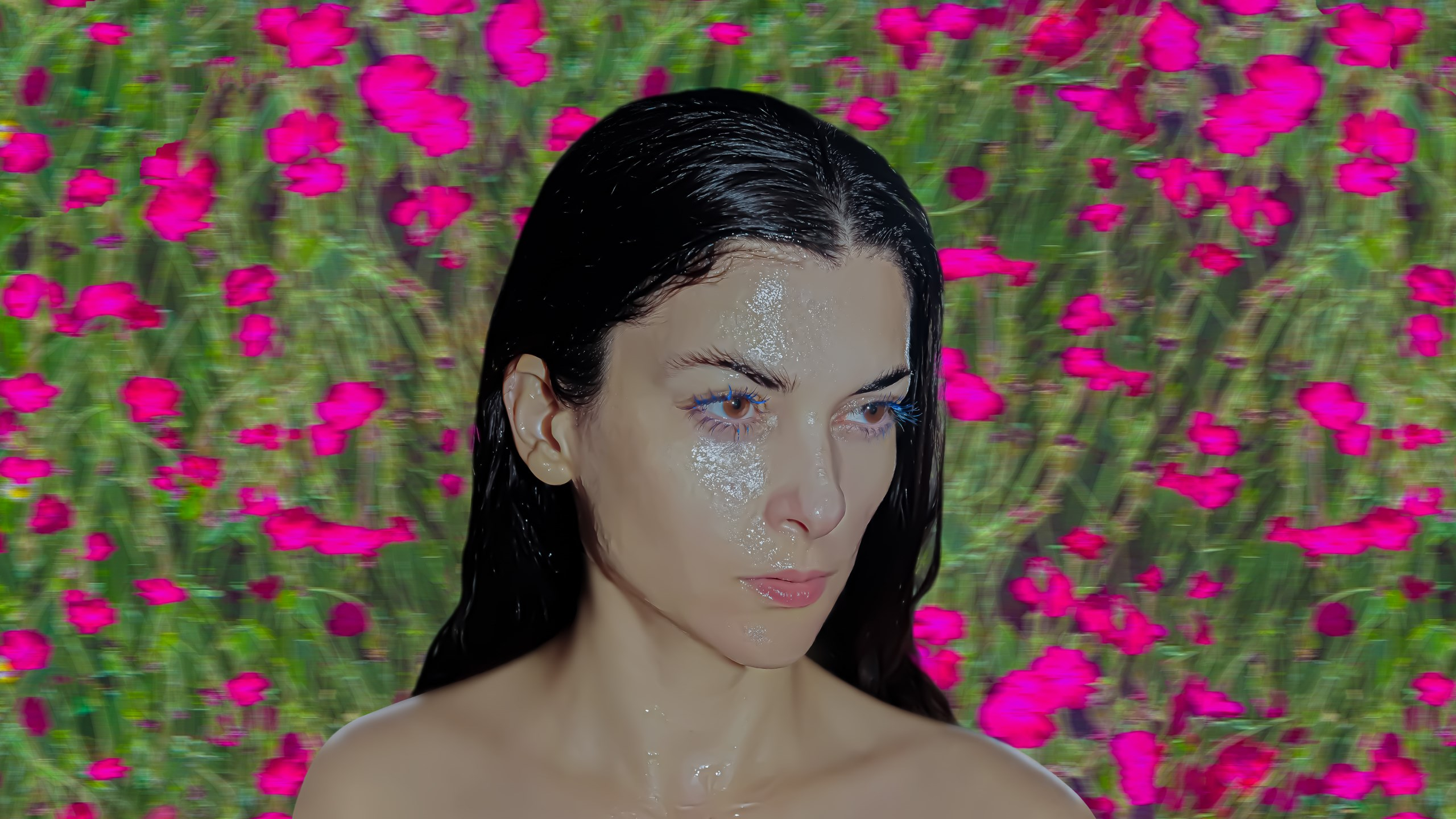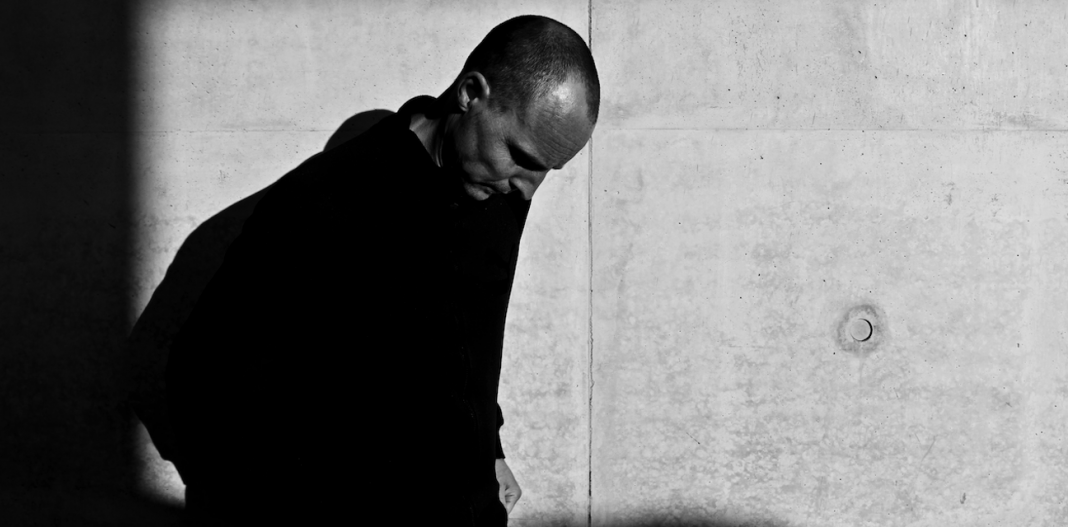Artist To Artist: Jeroen Search & Julia Govor

At the tail end of January an unlikely collaboration surfaced on Pushmaster Discs, a powerful, driven EP featuring five rough and rugged techno tracks built for the discerning dancefloor.
Julia Govor is a producer and disc jockey from Russia, her first experiences in music came in a small military town in Abkhazia, which led to her becoming the cassette-DJ at the town’s nightclub. Since then she has spent a lifetime exploring the possibilities of sound and sculpture having travelled across Russia amassing a firm knowledge base along the way. In the present she is a fierce selector, focussing on powerful techno with deep rooted sensibilities and industrial edge.
Jeroen Search is a Dutch producer and disc jockey with a distinctive reputation. He is a stalwart of techno in the present day, however he remains understated and focussed on the music itself rather than the bullshit which can come with it. As the founder of the label Search he has been responsible for releasing some of the most pivotal in European techno and beyond.
Together the pair worked to produce an EP and we felt now would be better than ever for them to talk shop.
Julia Govor: Your discography is extremely rich, more then 100 releases: including solo, remixes and solid run of collaboration projects. Do you learn something new when you collaborate with other artists, or you kinda have your routine and formula that you use all the time ?
Jeroen Search: Yeah I have been a busy guy since I started, I think it's even over 150 releases, but working in the studio never gets boring even after 25 years. Collaborations with other artists is a great way to find out how they interpret music. There is of course the difference of working on projects separately by sending over the several parts and loops of the tracks, like we did on our project and having actual studio sessions with other artists. They both have different end results. When I record a track in my studio I always do this 1 take versions and working that way will bring this certain "live" feeling to it, that's more or less my routine. Most of the times I go into the studio without having a clue what comes out, so maybe that's why it never gets boring.
Jeroen: So how about you? What's your approach studio-wise and do you have ideas in mind when you go to the studio or do you go in blank and see what happens?
Julia: Well when I work on solo projects I always work differently: some days I have that state of mind that I’m making exactly the sound I was looking for. Some days when I feel down, or unstable emotionally, I just play around on my instruments, recording variations, spontaneously composing rhythms without any structure and just trying to relieve stress through music. I was a journalist once and I was born to be curious, so the last 10 years I’ve been using that natural curiosity when I collaborate with other artists. I like when artists I collaborate with open up and are fully experimenting. Because Improvisation has no border, but afterwards it is nice to make something out of that experiment. For me this is a real challenge! I try my best to make my partners very comfortable during improvisation, because this is the time when I’m truly discovering new territories. And you are right, it’s never boring!
Julia: Currently, do you experience any challenges in your production?
Jeroen: We (my wife and kids) just moved into a new house, and I have a new studio. The room already sounds better than my old studio so I am really happy with that. Also I am figuring out the best way to do multitrack recording, that will be a change in my usual studio routine. Maybe it's also time to finally get deeper into Ableton and start using it in a different way than I used to do. Now I mainly use it as sequencer for my gear or to trigger audio loops when I play a liveset.
Jeroen: Do you have any plans on playing livesets sometime in the future?
Julia: I would love that, especially with my new multidisciplinary project JUJUKA – the Idea is to play 45 min live set with animation created by Le.Blue – my illustrators. I gave myself 2 years to make it happen. I started to discover new instruments, mostly modular synth, as my husband Kamran Sadeghi is mega pro. He always does tutorial in our studio and some of the Tip Top models sound interesting. Obviously 909 and Tempest are great but 909 has specific recognizable sounds that all my favorite producers use (including you) so I decided to work with Tempest instead, even if the Tempest is extremely complicated, sometimes I think that it controls me, not the other way around. I still love to compose drum patterns with that. I would definitely use Nord Lead for my future live sets because it’s extremely rich and I can get lot’s of good sounds, the bass line is fat, leads are on point, Russians like melancholy and dramatism so that synth is perfect for that. Now I just need to keep practicing but not sure if I would be able to do it without Abelton Live, for me that program is like butter and oil, I can’t start cooking without it. Maybe because my first production started with Live.
Julia: How do you combine political, social and artistic aspects in your music production?
Jeroen: Well when I make music I am not so aware of any political aspects to be honest, I just do the music without any of that stuff going on.
I try to do music as honest as I could be by staying close to myself, and my sound. But on the other hand of course those aspects influence your mood, so that will be reflected.

Jeroen: How do you start a song, from scratch or do you work on it at different sessions?
Julia: For example last week I decided to make a track using Villalobos’s voice from an interview I did with him in 2011! The interview was about the fact that he doesn’t like to dream while he is sleeping. I have the original recording so the voice sounds ok even though it was recorded in a club – with that track I started with his voice. I cut his words from sentences. Then I recorded synth- the mood was already there, spooky, dark, then I started with the rhythm – but it ended up mega busy. I let it sit for a few days and afterwards I deleted leads, pads and kept only bass and percussions! Basically I always start with a concept and then I try to stay as close as possible to the musical idea. Usually It’s really hard for me to stick with the same sounds. So I like to make tracks in clean session always.
Julia: One of my favorite track of yours is Acid Energy. Tell me more about it please! The vocal “don’t hold back” is so powerful, people in Colombia, Brazil and Russia – were crying on the dancefloor!
Jeroen: That track was made back in end of '94 and released early '95 on DJ Misjah's X-Trax label. Back at that time I did a lot of music together with DJ Misjah, he's the one who got me started in doing music on a higher level than just on a computer. Back in that days we used a lot of samples, like kicks from other records, sounds and voices from samples cd's and a TB303. I think the power of this track is the combination of the different loops like the TB303 and the voice but also it has this huge breakdown which slowly builds and builds untill the TB303 loop explodes. Yeah, actually listening to it right now while answering this question, cool to hear it again. Also a specific memory pops up when checking out the other tracks on the release as well, I remember Misjah driving me home after a studio session and we were listening the "Delerious" track from this release while it was snowing. Such a cool thing to see the snow coming down on the front-window screen in combination with the badass track.

Jeroen: When I am not working in the studio I love to listen to different music like Portishead, Massive Attack, Thievery Coorporation and Johnny Cash. What music/bands do you like?
Julia: I would love to remix Massive Attack 🙂 Anyway, back to your question: when I get homesick, I listen to Eduard Artemyev, USSR electronic music composer; when I feel happy I listen to Zhanna Aguzarova – the russian-soviet singer, her song about "yellow boots" makes me jump.
To be honest I love Nirvana and Patti Smith. When I personally met Iggy Pop I started listening to his music a lot. Everything from Moritz Von Oswald and Bernd Friendmann, Ultramarine album from Jetone and I always impressed of work by Kamran Sadeghi.
Julia: Who would you like to remix or collaborate with outside of the club culture world and why?
Jeroen: Oh difficult one, at the moment I have some plans to work together with a painter on a project which combines his installation with my sounds, but these are still thoughts for now. In the past I did some music with a guitarplayer but this was some years ago and it is still unreleased (only found it again recently on the old DAT tape archive). Anyway I also love the livesets I do together with Albert van Abbe as 'HARPOEN'. Because we both prepare our own parts of the sets its always a nice surprise what happens on stage.
Jeroen: What instrument(s) would you love to learn to play?
Julia: Drums!
Julia: Are you up for making music together again?
Jeroen: Yes! 🙂


















Must Reads
David Holmes – Humanity As An Act Of Resistance in three chapters
As a nation, the Irish have always had a profound relationship with the people of Palestine
Rotterdam – A City which Bounces Back
The Dutch city is in a state of constant revival
Going Remote.
Home swapping as a lifestyle choice
Trending track
Vels d’Èter
Glass Isle
Shop NowDreaming
Timothy Clerkin
Shop Now